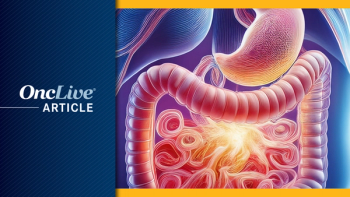
VEGF-Targeted Therapy in HCC: Ramucirumab
Transcript:
Arndt Vogel, MD, PhD: I think there is clearly a rationale to target VEGF. First of all, it’s a hypervascular tumor, and we know that a key driver for angiogenesis is VEGF. And when we look at the outcome of patients who have high VEGF levels in their blood, we do know that this is a poor prognostic marker, and that these patients usually have a pretty short survival to testing reported in several trials.
When we look at the drugs that we used for the treatment, they are multityrosine inhibitors, so they have different targets. And therefore it was never really clear which was the most important target. We do know that it includes an effect on the tumor microenvironment, angiogenesis, and also on the tumor cells itself.
And because they have so many targets, it was really difficult to bring it down to 1 target—VEGF, for example—as the most important target for efficacy. And only with the ramucirumab data, I think, do we really have proof of content that targeting the VEGF-receptor-positive disease really has an impact on tumor progression, and that this is a very important target for the treatment of HCC [hepatocellular carcinoma].
Masatoshi Kudo, MD, PhD: REACH-2 was designed based on the previous negative trial, REACH. REACH was negative because it was an all-comers trial that was negative. But by subanalysis in the patients with AFP [alpha-fetoprotein] value greater than 400 ng, ramucirumab showed a better survival than placebo. But in patients with AFP value less than 400 ng, there was no difference. So we decided to run the REACH-2 study. The only difference between REACH-2 and REACH was that only the patients with AFP value greater than 400 ng were included, and the stratification factor of macrovascular invasion was included.
This is a so-called biomarker-based trial. It was a very successful trial. Only we enrolled 292 patients, which is small number, but it was successful. The median OS [overall survival] in ramucirumab was 8.5 months, and 7.3 months in placebo arm. The hazard ratio was .71, and significantly the ramucirumab showed a better survival. And the response rate was good, and the progression-free survival was significantly better. So the trial was successful.
Arndt Vogel, MD, PhD: At the moment we do not really have clear evidence why AFP is a good biomarker for the treatment of HCC. And actually, when we look at the data from the other trials, the other multi tyrosine kinase inhibitors, they also do work in patients with a high AFP level. So this is not really specific for ramucirumab. The most important point about ramucirumab is that it does not work in patients with a lower AFP level. But how this really works in detail to underline molecular mechanism is not completely understood at this point in time.
Masatoshi Kudo, MD, PhD: This is the first biomarker-selected trial. So it’s good to have a biomarker to make the trial successful. It was successful. So now we know in patients with high AFP value, the ramucirumab is potent and very effective. But in addition, as a matter of fact, trials and real-world practices are a little bit different. If we look at the data from REACH, the PFS and anti-tumor activity were still positive in patients with AFP levels less than 400 ng. At least at more than 10 ng, there is antitumor activity. So in clinical practice maybe in the patients with elevated AFP value, the ramucirumab will be effective. So that’s a little bit different between the clinical trial and the real-world practice.
Transcript Edited for Clarity



































